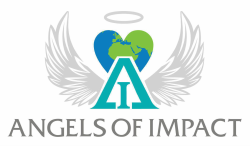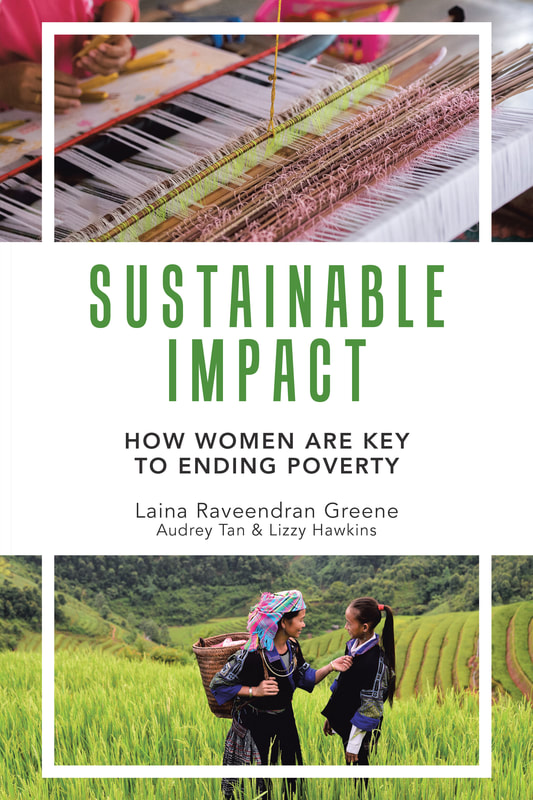Summary
Laina Raveendran Greene, Audrey Tan and Lizzy Hawkins have spent their lives searching for ways to address inequalities and enable people to lift themselves out of poverty. The authors highlight the issues facing those belonging to what has been called ‘the bottom of the pyramid’ and through vivid examples, show the ‘penalty’ that such people have to face on a daily basis.
They examine the ‘feminisation of poverty’, how the key to tackling poverty is to enable the very people who are most affected by it, i.e. women.
The next theme is the critique of the outmoded model of charity and donations. Providing powerful arguments for why social enterprise is the best model for tackling poverty, they urge investors to move beyond providing women just microfinance loans.
Finally, the authors invite you to join them in building a new type of capitalism, where people are prioritized over profits.
Sustainable Impact: How Women Are Key to Ending Poverty looks at how we can tackle poverty and build a more equitable world, one in which women have equal opportunities to uplift themselves from the ravages of poverty and build better futures for themselves and their communities.
They examine the ‘feminisation of poverty’, how the key to tackling poverty is to enable the very people who are most affected by it, i.e. women.
The next theme is the critique of the outmoded model of charity and donations. Providing powerful arguments for why social enterprise is the best model for tackling poverty, they urge investors to move beyond providing women just microfinance loans.
Finally, the authors invite you to join them in building a new type of capitalism, where people are prioritized over profits.
Sustainable Impact: How Women Are Key to Ending Poverty looks at how we can tackle poverty and build a more equitable world, one in which women have equal opportunities to uplift themselves from the ravages of poverty and build better futures for themselves and their communities.
Praise for Sustainable Impact: How Women Are Key to Ending Poverty
"Pithy, pragmatic, heart-warming, shocking - this book tells personal stories of the bottom of the income pyramid. You will learn about social enterprises and how you can and why you should engage. Women are the key to the solution to poverty and this book will convince you of that."
Vint Cerf, Internet Pioneer; “Father of the Internet”; Co-Designer of TCP/IP Protocols; Co-Designer of the architecture of the Internet; Vice-President and Chief Internet Evangelist for Google; and Co-founder and Chairman, People Centered Internet
“Laina Greene is one of those rare entrepreneurs who has managed to steer their professional career in accordance with their personal values. Her work in stimulating the creation and nurturing of social enterprises is both a sound business initiative and a valuable social service. Her fund enables enterprising women to lift themselves and their partners up from a condition of hopelessness and material poverty, and become active participants in the business community and an inspiration to their peers. This approach has the immense merit of being sustainable, of not requiring bureaucratic government programs of income redistribution, and of empowering disenfranchised populations both materially and spiritually.”
Eric Benhamou, Founder and Partner, Benhamou General Ventures
“In the last 100 years, there have been leapfrog developments in technology, transportation and medical facilities. The cliché is that humankind has developed, which is absolutely not true. The progress has benefitted a small percentage of the world’s population, leading to increased divisions between rich and poor. The imbalance is leading to increased social unrest in different parts of the world. The existing models of growth and consumption are not sustainable. But what are the other options? The answer lies in the book. It is a guiding force for the next generation of youth who can challenge the status quo and create sustainable models that perpetuate the concept of inclusive development. The book is a breath of fresh air and brings hope that pragmatic solutions are possible in a manner that is socially, financially and environmentally sustainable.”
Harish Hande, Co-Founder and Managing Director, SELCO India
Vint Cerf, Internet Pioneer; “Father of the Internet”; Co-Designer of TCP/IP Protocols; Co-Designer of the architecture of the Internet; Vice-President and Chief Internet Evangelist for Google; and Co-founder and Chairman, People Centered Internet
“Laina Greene is one of those rare entrepreneurs who has managed to steer their professional career in accordance with their personal values. Her work in stimulating the creation and nurturing of social enterprises is both a sound business initiative and a valuable social service. Her fund enables enterprising women to lift themselves and their partners up from a condition of hopelessness and material poverty, and become active participants in the business community and an inspiration to their peers. This approach has the immense merit of being sustainable, of not requiring bureaucratic government programs of income redistribution, and of empowering disenfranchised populations both materially and spiritually.”
Eric Benhamou, Founder and Partner, Benhamou General Ventures
“In the last 100 years, there have been leapfrog developments in technology, transportation and medical facilities. The cliché is that humankind has developed, which is absolutely not true. The progress has benefitted a small percentage of the world’s population, leading to increased divisions between rich and poor. The imbalance is leading to increased social unrest in different parts of the world. The existing models of growth and consumption are not sustainable. But what are the other options? The answer lies in the book. It is a guiding force for the next generation of youth who can challenge the status quo and create sustainable models that perpetuate the concept of inclusive development. The book is a breath of fresh air and brings hope that pragmatic solutions are possible in a manner that is socially, financially and environmentally sustainable.”
Harish Hande, Co-Founder and Managing Director, SELCO India

